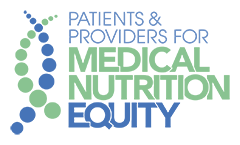My daughter was diagnosed with a genetic inborn error of protein metabolism at 15 months of age. Since that time, our daily life has been dominated by an acute awareness of the critical importance of Sasha’s nutrition (and the incredibly difficult task of finding safe, low protein food options). I remember the first time walking through the grocery store after her diagnosis. I read the nutrition facts on the labels as I walked the the store. The reality of the road ahead hit me like a ton of bricks & I burst out crying in the store. The amount of protein my daughter can have in a whole day is equivalent to one snack size yogurt cup. It is a daunting task for a medical professional (I am a pediatric nurse practitioner), let alone a lay person desperately trying to keep their child healthy. Over the years I have found that meeting my daughter’s dietary requirements is not only critical for her physical health, but also for her cognitive functioning, intellectual and behavioral health. I’m grateful that I have a career that provides decent health insurance coverage. However, even with insurance my daughter’s prescribed medical foods easily equate to a second monthly mortgage payment. All parents worry about their children’s future. On top of having a chronic life-threatening disease, I worry about my daughter’s access to medical foods throughout her adult life. Of course, what happens when patients don’t have coverage for medical foods? They buy “normal” food, which in the case of my daughter’s disease, universally leads to liver failure and death. Please do what you can to help.
My insurance will “cover”, aka reimburse, up to $1000 per year for the cost of medical foods. I believe that is due to a Florida state law, however the process very tedious and requires me to pay for the medical food upfront, submit receipts and then wait weeks for reimbursement. I have always thought that medical foods should be purchased with some kind of card, similar to a prescription card. It is incredibly difficult to come up with funds for medical foods to keep my daughter healthy. As a result, many families buy the least dangerous normal food…because it is a lot less expensive!! This is very dangerous and could be life-threatening with my daughter’s condition (Hereditary Tyrosinemia Type I).
